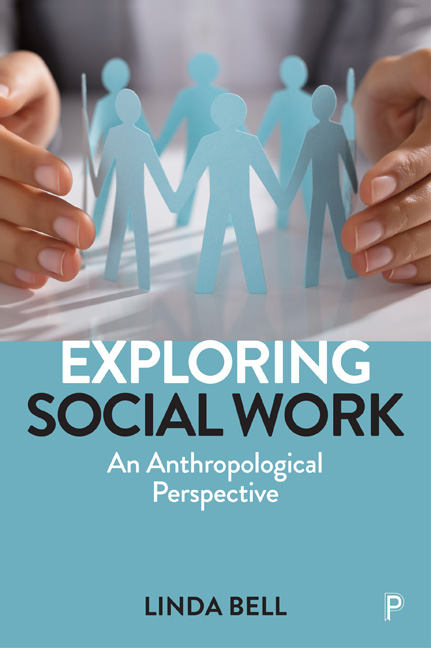Book contents
- Frontmatter
- Dedication
- Contents
- Acknowledgements
- Preface
- 1 Introducing Social Work: Who are Social Workers? Why do we Need Them?
- 2 Getting Involved: An Anthropological and Auto-Ethnographic Journey
- 3 Time and Change: UK Social Work and Comparative European Welfare Policies Since 1990
- 4 Becoming: Being Admitted, Educated and Trained in Social Work
- 5 Growing: Experiencing Social Work Education and Socialisation
- 6 Identifying
- 7 Valuing and Transgressing
- 8 Relating and Partnering: Social Workers, Clients/Service users and other Professionals
- 9 Knowing and Evidencing: Building a Research Base, Mapping and Modelling
- 10 Organising: Influences of the state, Organisations and Wider Social Policies
- 11 Symbolising: Cultural Representations in Theory and in Practice
- 12 Changing: The Future – Social Work in Wider Society
- References
- Index
1 - Introducing Social Work: Who are Social Workers? Why do we Need Them?
Published online by Cambridge University Press: 04 March 2021
- Frontmatter
- Dedication
- Contents
- Acknowledgements
- Preface
- 1 Introducing Social Work: Who are Social Workers? Why do we Need Them?
- 2 Getting Involved: An Anthropological and Auto-Ethnographic Journey
- 3 Time and Change: UK Social Work and Comparative European Welfare Policies Since 1990
- 4 Becoming: Being Admitted, Educated and Trained in Social Work
- 5 Growing: Experiencing Social Work Education and Socialisation
- 6 Identifying
- 7 Valuing and Transgressing
- 8 Relating and Partnering: Social Workers, Clients/Service users and other Professionals
- 9 Knowing and Evidencing: Building a Research Base, Mapping and Modelling
- 10 Organising: Influences of the state, Organisations and Wider Social Policies
- 11 Symbolising: Cultural Representations in Theory and in Practice
- 12 Changing: The Future – Social Work in Wider Society
- References
- Index
Summary
‘I think it is a positive future … I think social workers have gained ground, although there's been a lot of, like, tragedies, blame and scandals … they’ve actually also highlighted the role and the niche that social workers occupy, and made that more apparent, and the need … social workers are needed when things like Grenfell happen, or there's this big child abuse enquiry … there is a level of skill and way of working that only social workers can provide … as communities become more complex, as people's needs become more complex, so I think social work needs to keep changing along with society, and then it would always have a role.’
(Social worker, speaking in 2018)I first came into contact with social work and social workers as an ‘outsider’ in the early 1990s; since then, I have worked extensively with social workers, social work educators and researchers. In this book, I will present and explore ideas about how, since that time, social workers have explained their practice in the UK and in other countries, especially in Europe, and how they, employers and the state organise and develop their professional education. I will suggest how I think these various activities influence the ways in which they see and act in the world.
I wanted to start this chapter by quoting some of the key informants who were prepared to give me their views about what they think ‘social work’ is, or claims to be, and why they think that society needs, or does not need, social workers. According to the opening account told to me as part of an interview with a social worker with many years of experience, who has also been involved with social workers’ education, social change (including the difficulties encountered along the way) is particularly relevant to social work. The social and political contexts in which social work as an occupation is embedded are thus very likely to be key to any argument that stresses a need for social work and social workers. As we will see, 1989/1990 was a watershed for social work, especially across Europe, for all sorts of reasons, which was a key deciding factor in my choice of time period.
- Type
- Chapter
- Information
- Exploring Social WorkAn Anthropological Perspective, pp. 1 - 8Publisher: Bristol University PressPrint publication year: 2020

